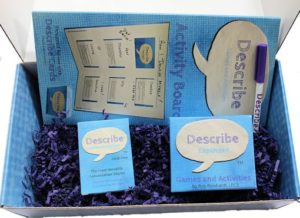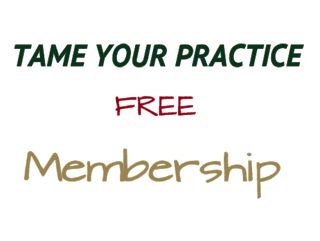More Than Just a Free Newsletter
Become a Tame Your Practice member for FREE and receive our newsletter, special offers, and exclusive members-only content.
What Therapists, and Other Health Care Professionals, Can Learn From Edward Snowden
Have you created an emergency client transition plan as required by your code of ethics? My new book, Private Practice Preparedness, with co-author Nancy Wheeler, will guide you through making such a plan and includes easy to use templates. Get 15% off the purchase price with the exclusive code found in the Tame Your Practice Members section.
Regardless of whether you see Edward Snowden as a patriotic whistle blower or a traitor to his country, he has some valuable insights into technology and privacy. The Guardian recently interviewed him and released a teaser video that includes information that all health care professionals should consider. His ideas are congruent with the changes we are experiencing in our codes of ethics as well as the most recent updates of HIPAA/HITECH.
Early in the teaser, Snowden is asked what professionals, besides journalists, should be changing their behaviors based on what we now know and he replied, “Anyone who has an obligation to protect the privacy interests of their clients is facing a new and challenging world and we need new professional training and new professional standards to make sure that we have mechanisms to ensure that the average member of our society can have a reasonable measure of faith in the skills of all the members of these professionals.”
Later, he re-emphasized this policy when queried about the potential for the average person to even know what questions to ask about technology. He stated, “We need to think of it in terms of literacy, because technology is a new system of communication, it’s a new set of symbols that people have to intuitively understand. It’s like something that you learn, just like how you learn to write letters at school, you know, you learn to use computers; how they interact, how they communicate. And technical literacy in our society is a rare and precious resource.” Snowden also said that, “there shouldn’t be a distinction between digital information and printed information”, noting that this is integral to maintaining privacy and a free state to have the same privacy rights associated with digital information as other forms of data.
Despite all the concerns raised about the NSA and privacy by Snowden, he still is an advocate for technology. When asked if it is compatible with privacy, he responds, “Absolutely, technology can actually increase privacy, but not if we sleepwalk into new applications of it without considering the implications of the new technology.” This speaks directly to HIPAA’s requirement for a risk assessment and analysis.
In short, health care professionals have an opportunity to improve the protection of their client’s privacy through the use of technology. In order to do so, they must become literate in the language of technology so that they can adequately assess risks, provide informed consent, and advocate for client privacy.
Related News
Similar articles you might be interested in!
Do I Need to File a BOIR?
Who Needs to File a BOIR? Has it been delayed? What is a BOIR?
Tame Your Practice Free Membership
Tame Your Practice membership is free and provides therapists access to exclusive content, discounts, and deals from partners!
Recommended Technology, Tools, and Resources for Therapists and Counselors
Recommendations for technology, web sites, secure email, phone, credit card processing, therapy tools/interventions, podcasts, and much more!
About the Author
Rob has been covering technology and business news for mental health professionals since 2011. His extensive experience in IT, business, and private practice allow him to synthesize information in a friendly, digestible manner. He also enjoys time with his family, ultimate frisbee, and board gaming.




